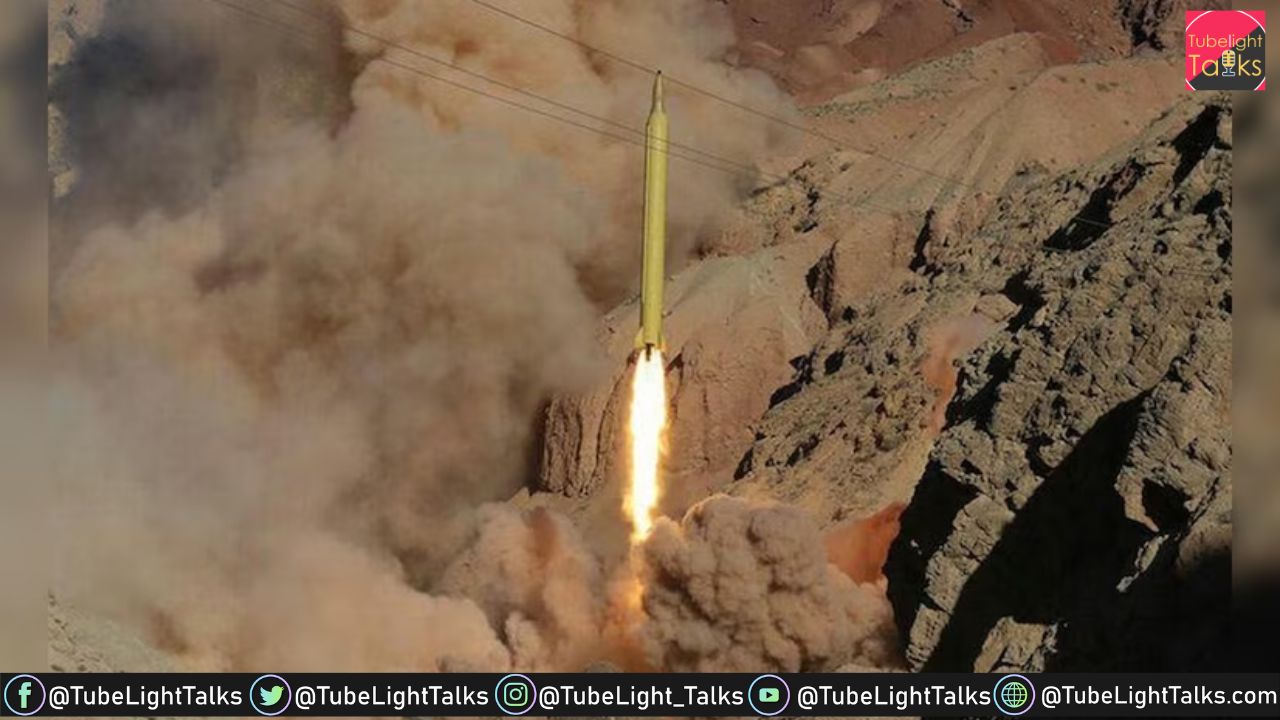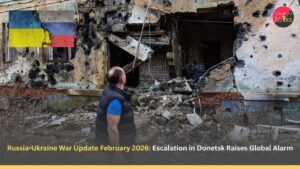Iran Attacks Israel with Ballistic Missiles: A Retaliatory Move
Iran Attacks Israel | Iran has initiated a series of ballistic missile launches toward Israeli territory, leading to a significant escalation of tensions between the two countries. The latest incident has placed both nations on the verge of a potential conflict. In a remarkable turn of events, Iran carried out a large-scale attack on Israel by deploying hundreds of drones and cruise missiles towards the Jewish state. The unprecedented direct assault was in retaliation for a strike on an Iranian diplomatic building in Damascus, which resulted in the death of a prominent Iranian military leader and several other officers. This situation has significantly exacerbated regional tensions, and Israel has vowed to act at the appropriate time. This recent development requires a deeper analysis of its implications for the region.
Iran Attacks Israel | Iran’s Provocation
The Middle East is facing a perilous escalation in the ongoing conflicts as Iran has made a critical choice to carry out a substantial assault on Israel. The launch of more than 300 drones and missiles towards Israeli territory has sparked apprehension regarding the likelihood of additional violence and instability in the region. Although the attack primarily originated from within Iran, it was mostly thwarted with the assistance of international allies, despite its objective to strike crucial Israeli installations.
Response from Israel
Israeli officials, such as Prime Minister Benjamin Netanyahu and Defence Minister Yoav Gallant, have underscored the fact that Iran will bear the brunt of the repercussions for its belligerent actions. Despite the successful interception of the majority of the incoming drones and missiles, this assault serves as a vivid reminder of the precarious state of affairs in the area. The Israeli armed forces continue to maintain a state of heightened readiness, fully equipped to safeguard the nation against any additional threats originating from Iran.
The Background of the Conflict
Iran Attacks Israel | The longstanding Iran-Israel hostility is rooted in political, religious, and territorial disputes. The religious divide between predominantly Shia Iran and predominantly Jewish Israel has fueled ideological differences and mobilized support against each other. The 1979 Iranian Islamic revolution worsened tensions as it openly opposed Israel’s existence.Border conflicts worsen animosity between countries.
■ Also Read: Shining Light on Solar: The Rise of Clean Energy
Israeli control of Palestinian lands, including the West Bank and Gaza Strip, is a major disagreement for Iran. Iran’s support for militant groups like Hamas and Islamic Jihad heightens the tension.Political factors fuel animosity between Israel and Iran. Israel fears Iran’s nuclear ambitions and support for Hezbollah, while Iran accuses Israel of covert actions like cyberattacks and assassinations.
The Implications for the Region
The recent escalation of tensions between Iran and Israel has raised concerns among neighboring countries and the international community. Any conflict between these two powers has the potential to engulf the entire region in chaos and bloodshed. The United Nations has called for restraint and dialogue to prevent further escalation and called on both sides to prioritize peace and diplomacy over aggression.
International Concern
The international community has strongly condemned Iran’s attack on Israel, with leaders from around the world speaking out against the aggressive actions. There is a growing worry about the potential for a wider conflict in the region, prompting calls for caution and peaceful solutions. The United Nations has expressed alarm at the risk of a dangerous escalation and has urged all parties involved to exercise maximum restraint to prevent further violence.
India’s stand
India has conveyed its serious apprehension regarding the heightened tensions between Israel and Iran, which jeopardize peace and security in the West Asia region. The Ministry of External Affairs stressed the need for prompt de-escalation, exercising of restraint, avoidance of violence, and a return to diplomatic channels. The ministry is closely monitoring the situation as it unfolds, with Indian Embassies in the region maintaining close communication with the Indian community. Upholding security and stability in the region is imperative, as highlighted in the ministry’s statement.
The Way Forward
As the situation continues to unfold, both Iran and Israel must find a peaceful resolution to their differences. Escalating tensions through military actions will only lead to further destruction and suffering for the people of the region. Dialogue, compromise, and respect for international law are the only ways to ensure a lasting peace in the Middle East.
In conclusion, the recent missile attack by Iran on Israel is a stark reminder of the fragile nature of the geopolitics in the region. Both countries must exercise restraint and work towards a peaceful resolution of their differences. The international community must also play a constructive role in de-escalating tensions and promoting dialogue. Only through dialogue and compromise can a lasting peace be achieved in this volatile region.
Ultimate aim of human race
The rapid progress in science and technology in the 21st century has transformed our lives, enhancing communication, travel, access to information, and business practices. While the convenience and luxury brought by technology are undeniable, it is important to acknowledge the potential dangers, such as bomb missiles, that come with scientific innovations.saint rampal ji in his satsang told that main aim of human life is to attain true worship from Tatvadarshi Saint and follow his worship and attain complete moksh to satlok as emphasized in religious scriptures. To know more about visit *Sant Rampal Ji Maharaj” mobile app from Google Play Store.











Discussion (0)